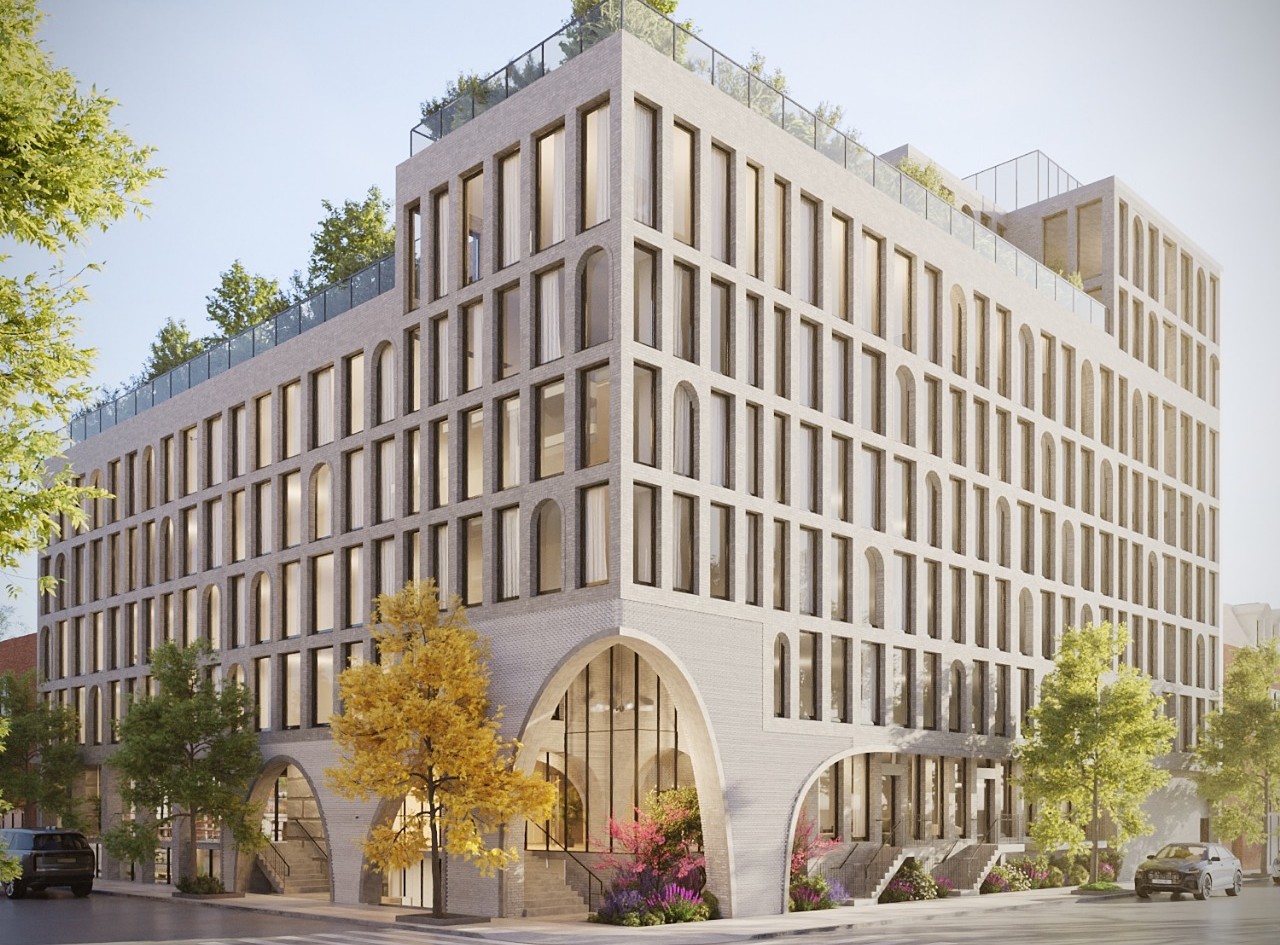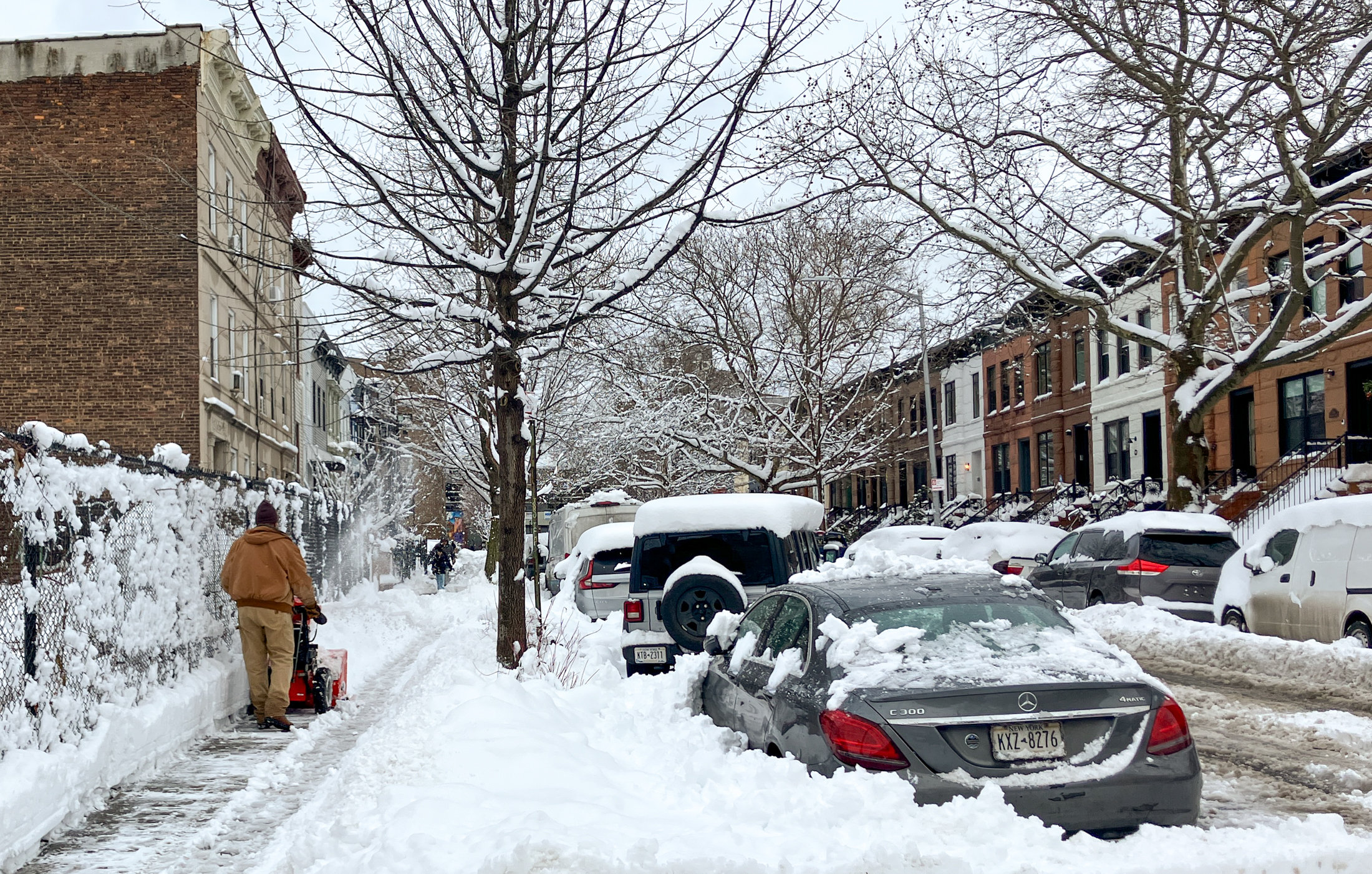Is the Creation of Affordable Housing in Jeopardy?
There have been a number of articles published recently that examine the future of affordable housing in the city, many of which zoom in on the problems developers are having (or are expected to start having) financing projects with affordable components. To summarize: There’s less money for 80-20. The New York State Housing Finance Agency…

 There have been a number of articles published recently that examine the future of affordable housing in the city, many of which zoom in on the problems developers are having (or are expected to start having) financing projects with affordable components. To summarize:
There have been a number of articles published recently that examine the future of affordable housing in the city, many of which zoom in on the problems developers are having (or are expected to start having) financing projects with affordable components. To summarize:
There’s less money for 80-20. The New York State Housing Finance Agency says there will be only $689 million available over the next three years for new 80-20 developments (whereby 80 percent of apartments in a building are market-rate and 20 percent are affordable), according to an article in Crain’s. This means that only two or three of the 30 or so developers currently seeking tax-exempt 80-20 financing this year will get the dough they wanted. The Housing Financing Agency has determined that 80-20 doesn’t result in the most affordable housing bang for its tax-exempt bucks and is putting more financing into other programs. Regardless, the 80-20 clamp down is likely to affect projects in Manhattan more than those in Brooklyn and the other boroughs.
Low-Income Housing Tax Credits Are Vanishing. Per the Real Deal: Affordable housing financiers—called syndicators—package…tax credits and sell them to firms that get a return on their investment and a reduction in taxes. Banks that buy the low-income credits also get favorable consideration for investing in underserved communities from regulators under the federal Community Reinvestment Act. But after the subprime crisis left balance sheets uneven, many investment firms have less need to shelter profits from taxes. In response, developers of affordable housing are starting to consider building fewer units or trying to rustle up alternate sources of funding. “The government can put in more money, private capital funds could give more, or we could raise the rents some,” says Martin Dunn, the president of Brooklyn-based affordable housing developer Dunn Development.
The City is Whittling Affordable Housing Projections. Although the Bloomberg administration still believes it will reach its target of creating 92,000 new affordable units by 2013, it is also scaling back the number of affordable units it expects to see created over the next year, according to an article in the Observer. HPD predicts that construction on 7,947 affordable units will take place over the next fiscal year (which begins in July); HPD previously reduced the number of affordable housing construction starts it expected to see happen over the coming fiscal year from 11,587 to 8,568.
Tax-Exempt Housing Funds are Drying Up [Crain’s]
Financing for Affordable Housing Harder to Come By [The Real Deal]
Targets for Affordable Housing Drop, But City Says Its Plan Still On Track [Observer]
Photo by threecee.





“Why is it worse that Zach has a low rent apartment than that someone who bought a coop or house 3 years ago has a low cost apartment?”
Because the property rights that were “given” to Zach were TAKEN from the owner of the building.
Rent control gives tenants property rights in their apartments. Rent stabilization gives them fewer.
Obviously if you give out property rights you are going to get undeserving people living in inappropriate spaces. Look at any population of property owners!
But that is the point of property rights: they allow people to live their lives even if someone else with more money would be willing to bid more than they can currently pay.
Why is it worse that Zach has a low rent apartment than that someone who bought a coop or house 3 years ago has a low cost apartment?
Zach – are you for real boasting about your cheap regulated rent? don’t you think there are people out there who deserve a place more than you just sitting comfortably in your place?
This is the problem with rent stabilization. Bianca Jagger can have an apartment. Zach has an apartment. It is not means tested. It is not going to the most worthy. It is not distributed fairly. It is a crazy, sometimes inherited, privilege.
12:03 — Actually, the Victorians are a superbly bad example… most of the housing that we’re lucky enough to have now (and celebrated on this site, for that matter) is a Victorian product for the middle and working class.
I’m a perfect example of the rent control problem — I’m rent-stabilized but not all that poor. While I’m not in the buying market, I could rent a nicer apartment without struggling. Instead, I stay where I live now — why wouldn’t I? It’s a nice place and I’m guaranteed low hikes. I’ll probably never move up to a more appropriate apartment.
(In a great rent stab story, my downstairs neighbor, who’d been paying no more than $900 a month for twenty years, bought a $450,000 condo in Williamsburg. This is the exception, not the rule, but smaller stories like mine can’t be that rare.)
It also makes demolition harder, artificially aging the housing stock and limiting new construction.
“That’s ridiculous, 11:24. Pick a position on anything and it is possible to find examples to illustrate. Bianca Jagger, et al, are hardly the majority of people in rent controlled apts.”
I’ve encoutered many, many non-celebrity, “ordinary” New Yorkers who could afford to pay more but were and are living off the largesse of rent control. Such arranegments are legendary across NYC. I’ve worked with at least FOUR such individuals myself, one presently. Face it, the process is open to manipulation by people who have no need for any rent assistance or control.
“More imortantly, on a human scale, we should at least be concerned about what is happening to our fellow New Yorkers. Have we risen so high that we cannot imagine what it would be like to choose between paying rent or having enough food, or having electricity?”
What does this have to do with rent regulation? When I was poor, supporting a small family, working my way through school, I rented where I could AFFORD to and never once was fortunate enough to utilize rent control or regulation. I sacrificed and scraped by and made it. If I could do it, anyone else also has a chance. Simply put, there are affordable rental options in this city – they’re just harder to find. What a surprise! Furthermore, even if rent control was abolished the market would create affordable opportunities, because it’s inevitable that some areas will be more desireable – for a variety of reasons – than others. Plus, places like the Gateway complex in Spring Crrek remain under Mitchell-Lama and will continue to do so.. Rent control and regulation are more examples of areas in which the government is involved in issues the market itself should regulate.
That’s ridiculous, 11:24. Pick a position on anything and it is possible to find examples to illustrate. Bianca Jagger, et al, are hardly the majority of people in rent controlled apts. We are so Manhattan-centric that we see the entire rent situation in terms of what a couple of famous or infamous moochers have, that we can’t see the forest for the trees. The majority of rent controlled apts in this city are in the Bronx, upper Manhattan, Bklyn and Queens, mostly in very un-chic areas, far surpassing in numbers, those on the Upper East, Upper West Sides and the downtown areas. Affordable units are disappearing every day, as Mitchell-Lama buildings go market rate, and as 10:01 said, and nothing is replacing them.
Who should care? We all should, as what happens to where people can live in this city does impact jobs, the quality of work and productivity produced by people who have longer and longer commutes, not to mention crimes against people and property as more people get desperate and angry. This increases the need for protection, the need for more jail space, the raising of insurance rates, raising of taxes to pay for all of this, and on and on. We are fools if we think what is affecting “them” does not affect the rest of us. More imortantly, on a human scale, we should at least be concerned about what is happening to our fellow New Yorkers. Have we risen so high that we cannot imagine what it would be like to choose between paying rent or having enough food, or having electricity?
I believe we keep repeating ourselves in history, the technology only improves. We are repeating the patterns of our Victorian forbearers who built some of our homes – where the poor deserve their station, and exist only to serve the rich, who spend so much time acquiring wealth that they can’t see or empathise with the suffering beneath them. Haven’t we learned anything in the last 150 years? Affordable housing, and some kind of rent relief, is a necessary component of a socially responsible society.
Sterling Silver
“How exactly does rent regulation restrict the amount of available housing?”
People who can in reality afford to pay much higher rents hold onto apartments that would otherwise be in the public domain for generations. Rent regulation may have been put in place to assist the low-income reidents, but that’s not the way things have turned out. Folks like Bianca Jagger and Robert Chambers’ coke-fiend girlfriend are among those who have benefitted from this poorly conceived and even worse-run system. I wouldn’t call them “low income.”
i thought this was a website for historic brooklyn brownstones. Who gives a crap about affordable housing?
Actually (this is 10:31 again) I’ve carefully looked at studies by economists of this very question of whether rent regulation restricts housing production. In the 1980s the RAND corporation found that yes, strict rent control (the kind NYC no longer has) would likely put a long term damper on the production of new housing supply but that more moderate forms (like what we have now) would have a much smaller effect.
No policy is perfect, but we do have to ask ourselves whether building more housing at all costs is our objective. If so let’s lift pesky zoning restrictions and other regulations that keep the free market from erecting high rises in brownstone Brooklyn. It’s Economics 101: Think about how much the cost of housing would go down if we increased supply by getting rid of zoning height restrictions! We tend to have an extremely selective (and selfish) view of government intervention in the marketplace: look the other way when we personally benefit.
Rest assured Polemicist: soon Cuba will have plenty of condos, and slums too.